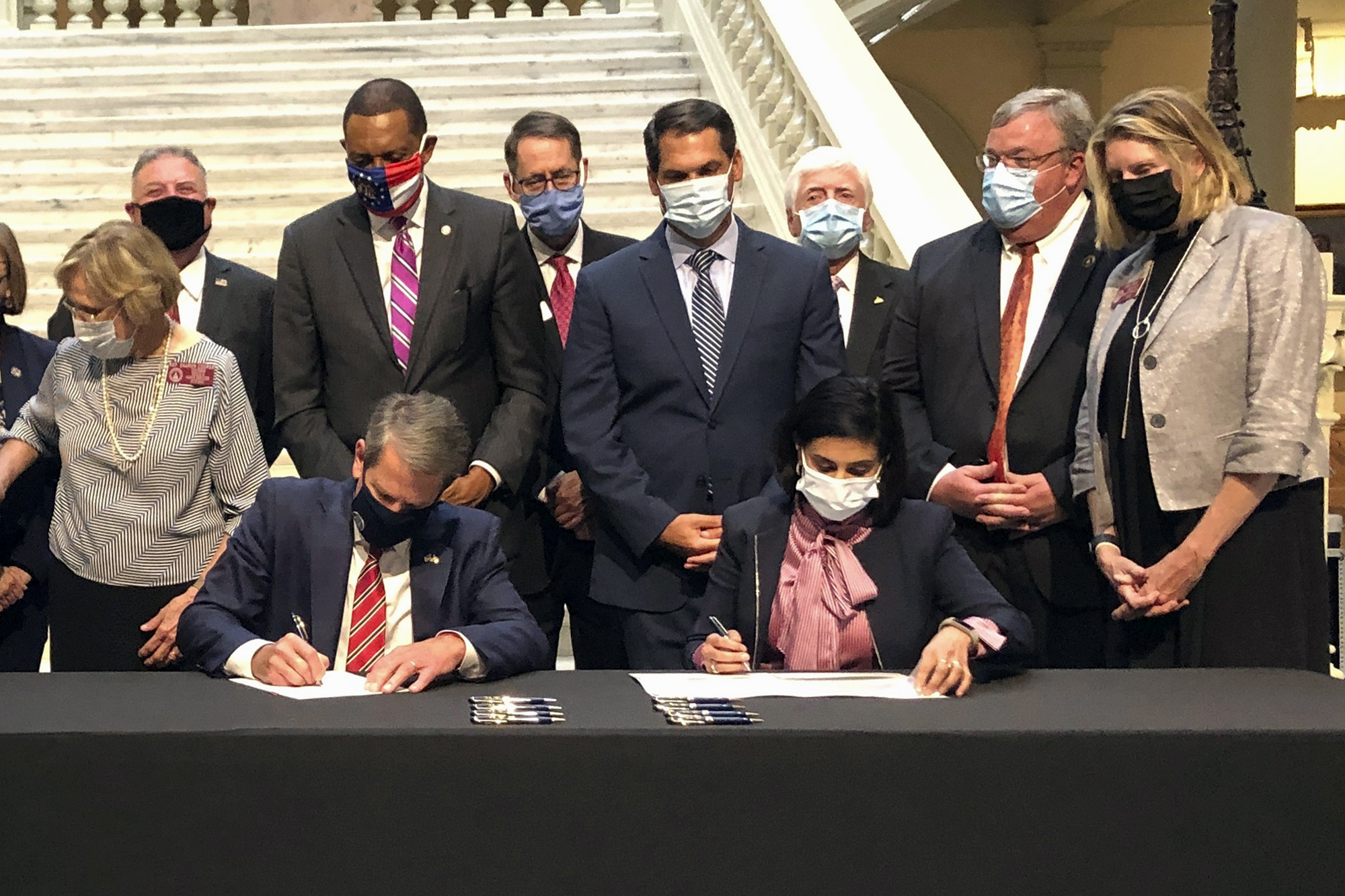Some able-bodied South Dakotans could face work requirements on Medicaid benefits should a ballot resolution pass in November, but the measure likely hinges on a White House victory by Donald Trump.Republican lawmakers in the state Senate and state House have passed the proposal but—even if South Dakota voters back the measure—the use of federal funds would require a sign off by the administration in charge, likely meaning that a White House win by Democratic Vice President Kamala Harris would put the legislation on hold.Medicaid is a joint federal and state program that helps to cover medical care, such as X-rays and family planning, to low-income individuals.Georgia is currently the only state that has Medicaid work requirements. During Trump’s previous administration, 13 states were approved to implement the measures, but a number of those were paused during COVID-19 or due to legal challenges. Once President Joe Biden won the White House, his administration withdrew the approvals.Arkansas initially implemented the requirements, but later had its bill struck down by a federal judge.Georgia has been able to keep their work requirement after a court ruled it would likely increase the number of people with health insurance in the state.South Dakota’s need for a federal waiver in order to move forward with the measure means that a Trump victory in November will likely be needed for the bill to be implemented.South Dakota Republican State Representative Tony Venhuizen said that if Harris wins the White House, he assumes she will delay implementation of the plan.”Biden has disallowed them. I assume (Democratic nominee) Kamala Harris would do the same. There has really not been enough time to fully implement these plans in any state,” Venhuizen told South Dakota News Watch.Newsweek has reached out to Venhuizen and the Harris campaign by email.Work requirements on Medicaid has been sought by a number of Republican-led states.Earlier this year, South Dakota’s Republican State Senate Majority Leader Casey Crabtree told reporters: “Really, it’s a fundamental question. Do we want to incentivize those who can, or are able-bodied, those who can work, to do so? Or do we want to leave a gap where government dependency can become a way of life?”Newsweek has reached out to Crabtree for comment.Those that have spoken against the action say that work requirements are ineffective, stop people from accessing the care they need and go against the will of the voters.Which states have implement work requirementsArkansas was the first state to implement work restrictions on Medicaid after gaining federal approval from the Trump administration.The program was launched in 2018. It required those enrolled in Medicaid that were under the age of 50 to work 80 hours per month, be in schooling or qualify for an exemption through pregnancy or disability. An estimated 18,000 people lost coverage under these rules, according to research from KFF.The program lost its waiver in March 2019 when federal Judge James Boasberg ruled against the measure saying that it did not meet the requirement of helping provide health care for those with low incomes.During the Trump administration, 13 states had work requirements approved—Utah, Arizona, Nebraska, Wisconsin, Michigan, Indiana, Arkansas, Georgia, South Carolina, Kentucky, New Hampshire, Ohio and Maine.South Dakota had a pending waiver for Medicaid work requirements at the time, but did not receive approval before the end of the Trump administration.A number of these plans were on hold for the COVID-19 pandemic and some of them were still in the court system in 2021 before being subsequently rescinded by the Biden administration.After Biden revoked the waivers, officials in Georgia decided to sue and ultimately won a federal case in 2022 that allowed the state to reimplement the work requirements due to the new measures only being applied to new applications and not current enrollees.The Georgia Pathways to Coverage program requires all Medicaid recipients to prove they completed at least 80 hours of work, schooling, volunteering or rehabilitation to quality.In February 2024, Georgia sued the Biden Administration again. The state claimed that the original decision to revoke the work requirements in 2021 and rescind “core elements” of the Georgia Pathways program had delayed its implementation.In the lawsuit, Georgia is looking to keep the program—due to expire in September 2025—going until 2018.AP Newsroom reports that over a year after the Georgia Pathways plan was implemented, it had roughly 4,300 members.
Subscribe
Login
0 Comments





